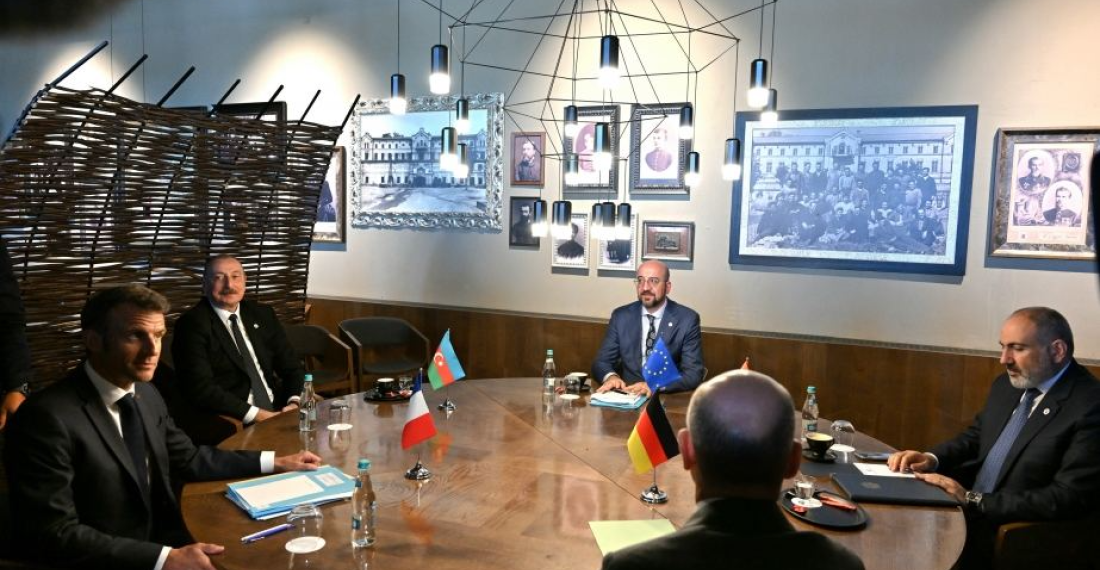The Armenian Prime Minister Nikol Pashinyan and Azerbaijani President Ilham Aliyev met yesterday (1 June) near the Moldovan capital, Chisinau. The meeting took place on the sidelines of the second summit of the European Political Community (EPC), and was chaired by the European Council President Charles Michel. The French President Emmanuel Macron, and German Chancellor Olaf Scholz, were also in attendance.
In remarks made following the meeting, President Michel said that they had a “very good meeting”, in which they addressed the topics of connectivity, security and rights, border delimitation, and the peace treaty.
Michel announced that they had scheduled a next meeting of the five leaders for 21 July, to take place in Brussels, adding that yesterday’s meeting was “good preparation” for then. “It means that we are working hard, and we intend to support all the positive efforts in the direction of normalisation of the relations,” said Michel.
He also extended an invitation to the four leaders to meet again in the margins of the third summit of the EPC, which is scheduled to take place at the Alhambra Palace in Granada, Spain, on 5 October.
“It means that we will do everything on the EU side in order to help, to provide assistance, to make more progress in the direction of normalisation of the relations,” Michel concluded.
Meanwhile, the office of the Prime Minister of Armenia issued a statement which said that they discussed “issues related to the unblocking of regional transport and economic infrastructures, border delimitation and border security between the two countries, the agreement on the normalisation of relations between Armenia and Azerbaijan, the need to address the rights and security of the people of Nagorno Karabakh, as well as POWs, missing persons and other humanitarian issues”.
In a meeting with members of the Armenian community in Moldova that took place after the five-way meeting at the EPC summit, PM Pashinyan said he considered the discussion "productive".
A busy summer follows a busy spring
In a meeting with members of the Armenian community in Chisinau on 1 June, PM Pashinyan announced that the deputy prime ministers of Armenia, Azerbaijan and Russia are meeting in Moscow today, on 2 June. The three deputy PMs constitute the working group on unblocking regional communications.
Then, on 12 June, the Armenian and Azerbaijani foreign ministers Ararat Mirzoyan and Jeyhun Bayramov will meet in Washington DC, Pashinyan announced. This is off the back of four days of talks between the foreign ministers in the American capital at the start of May.
And, on 21 July, Pashinyan and Aliyev will meet again in Brussels.







